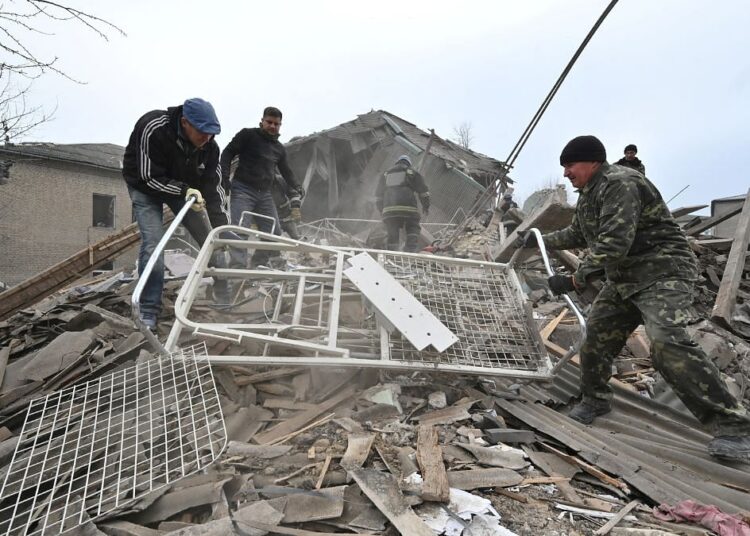New Delhi: Three reasons explain the mismatch between Western expectations from Russian cyberspace operations during the war in Ukraine and their actual impact, according to a new report from the Carnegie Endowment for International Peace.
First, Russia’s information operation troops — similar to the West’s military cyber commands — remain in their infancy and are more attuned to “counter-propaganda than for offensive cyber operations”.
Second, their offensive cyber capacities are structured to run through silos within intelligence and subversion agencies instead of jointly operating to ensure combined arms warfare.
Third, as the military campaign in Ukraine, especially at the start, was not optimal for Russia, it hindered their cyber warfare campaigns and activities, adds the US-based think-tank.
Released Monday, the report, ‘Cyber Operations in Ukraine: Russia’s Unmet Expectations report’, is authored by Gavin Wilde, senior fellow for technology and international affairs, and is the second in a series that assesses the cyber contours of the war in Ukraine.
Also Read: In western arms sanctions on Russia, China’s arms industry could stand to gain
Russia’s understanding of cyber different
Significant to the contrast between Russia and the West is the differing understanding of what “cyber” entails.
Russia’s understanding of cyber is “more expansive, encompassing, and emphasises the psychosocial impacts of information and communication technologies on both the polity and the public (than the West),” the report says.
On the other hand, the US and the West view cyber as a composition of integrated technical networks. However, this view rarely finds resonance in official Russian strategic thought.
Conversely, for Russia, cyber is far more about “information confrontation or information war/warfare”, which includes “both technical and psychological, code and content—that can be deployed against adversarial systems and decision-making,” the report explains.
For cyber information warfare, Russia has never differentiated in the methodologies and operations that should be used during peacetime and wartime, a distinction the West makes in its cyber information campaigns.
Also Read: PLA tried to intrude, change status quo in Arunachal, our troops sent them back, says Rajnath
Infancy of Russia’s cyber command
As Washington started deliberating about a cyber command in the early 2000s, this eventually led to the United States Cyber Command (USCC) being set up in 2009.
However, in contrast, Russia only started thinking about a cyber command in the 2010s. This was after the Arab Spring, the Russia-Georgia war, and the growing bonhomie between Ukraine and the European Union. These events made the Kremlin realise the need for a cyber command, the report says.
“After reportedly being formally envisioned and established sometime in 2014–2015, the existence of a Russian cyber-focused unit under military command — separate and distinct from the intelligence services in structure and mission focus — was not formally acknowledged publicly until 2017,” Wilde says.
Essentially, this shows that when the war in Ukraine broke out, Russia’s cyber command structure had only been operational for 6-8 years. There was still a lack of clarity on whether it functioned through political channels or the military. Further, the report notes that its “infancy extends to the experience of its cadres”.
Given these circumstances, Russia’s cyber command structure lacked both experience and service, hindering its cyber warfare during the war.
Lack of combined arms warfare
A lack of cohesiveness and jointness in Russia’s bureaucratic structure also affected its cyber-warfare campaigns during the conflict in Ukraine, the report adds.
Essentially, the two Russian intelligence organisations with a track record of cyber warfare and subversion in Ukraine are the Main Directorate of the General Staff of the Armed Forces of the Russian Federation (GRU), and the Federal Security Service (FSB).
However, both organisations share a long-standing rivalry. This rivalry, the report explains, was further accentuated since the “2016 hacks of the US Democratic National Committee and subsequent intrigues in Moscow, where several FSB officers were arrested for treason, ostensibly for implicating the GRU to Western contacts”.
The FSB is supposed to have the technological edge when it comes to cyber technology, tradecraft, talent, and experience. However, it will be very unwilling to lend its assets for cyber campaigns to the GRU or other organisations.
As a consequence, “coordination and cooperation between the two are unlikely”, thus hindering chances for combined arms cyber warfare campaigns in Ukraine, the report says.
Poor beginning to military campaign in Ukraine
Russia’s military thought prioritises cyber and information campaigns in the run-up to and during the initial phases of conflict. This phase is pivotal for any Russian cyber operation. However, it is at this stage of the Ukraine war that Russia fell short.
As the Carnegie report explains, “A Russian information campaign is most effective at the early stages of a combat operation, when it provides cover for rapid military actions… However, Russia lost this opportunity in its operations in the Luhansk and Donetsk regions. Russian troops were unable to penetrate these regions as promptly as in Crimea due to lack of military resources.”
Essentially, the level of Ukrainian resistance during the initial months of the war was inversely related to Russia’s cyber campaign. As Ukraine’s defence outperformed expectations, the effectiveness of Russia’s cyber-attack dwindled.
The report concludes, “Moscow’s information warfare thinking, its offensive cyber capabilities, and its organisational construct proved simply unfit for purpose in an event-driven, combined-arms campaign of the sort undertaken in February 2022.”
(Edited by Smriti Sinha)
Also Read: With eye on China — Army facilitates civilian adventure activities near to LAC
Read the full article here

